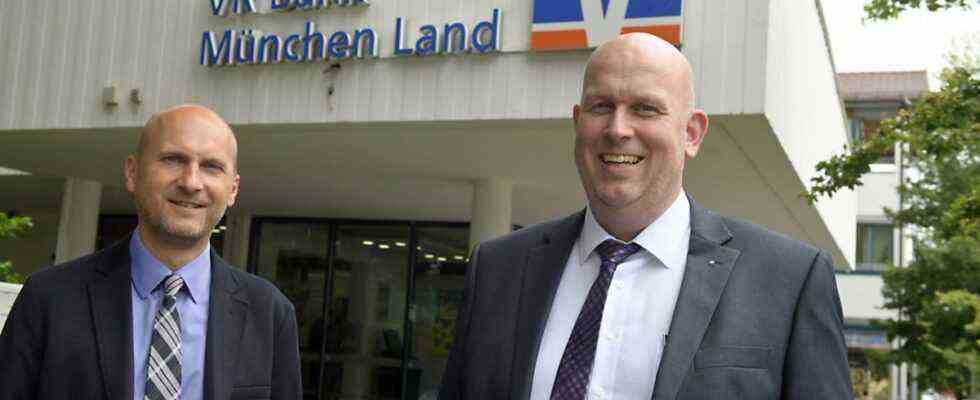“If one and one end up being less than two, then a merger doesn’t make sense.” With these words, Andreas Müller, CEO of VR-Bank München-Land based in Oberhaching, justified the preliminary failure of an intended merger of his bank with Raiffeisenbank Isar-Loisachtal. “After an intensive and careful examination of the future strategic, procedural and organizational framework, the decision-making bodies of both banks have come to the mutual conclusion that they are currently not holding any further talks aimed at a merger,” says a press release from VR-Bank München-Land .
According to both Müller and Uwe Massong, the Raiffeisenbank Isar-Loisachtal board member, it was not financial reasons that led to the termination of further talks, but inconsistent work processes and the distribution of tasks within the two banks and their branches, for which there was ultimately no reason to find compromises. Müller speaks of different philosophies and ways of thinking in the procedural area that cannot be brought together. In the end, both cooperative banks feared that the merger would result in the loss of employees who would not accept a fundamental change in their work processes. And you don’t want to lose employees under any circumstances.
“In the end we looked each other in the eye and said: It’s not possible,” reports Müller. It was an amicable decision, but the issue was not finally off the table. “The merger doesn’t make sense at the moment, but we’ll keep talking,” explains Müller. And Uwe Massong from Raiffeisenbank Isar-Loisachtal says that both financial institutions would continue to coordinate in some areas. Both board members emphasize that the merger plans did not arise out of necessity and that both banks are doing very well economically.
There were first merger talks before Corona
VR-Bank München-Land is significantly larger with 20 branches – twelve of them in the district of Munich, four in Bad Tölz-Wolfratshausen, two in Ebersberg and two in the city of Munich – and with a balance sheet total of 2.3 billion euros in 2021 than the Raiffeisenbank Isar-Loisachtal based in Wolfratshausen, whose balance sheet total in the previous year was almost 700 million euros and which, in addition to the main office in Wolfratshausen, also has branches in Königsdorf, Geretsried, Hohenschäftlarn, Straßlach-Dingharting, Gelting and Baierbrunn.
The Raiffeisenbank Isar-Loisachtal in Wolfratshausen.
(Photo: Hartmut Pöstges)
The first merger talks were held before Corona, reports Andreas Müller; these were then interrupted by the first lockdown and resumed in summer 2021. The result of the rough analysis was then: “Looks good.” But the deeper one delved into the subject, the clearer one saw “that both houses, although both are cooperatives, tick completely differently”. Which in turn both negotiating partners would have seen as very problematic. Nor would these problems have outweighed the synergy effects that would have resulted from a merger. And it’s a shame about them, says Uwe Massong.

